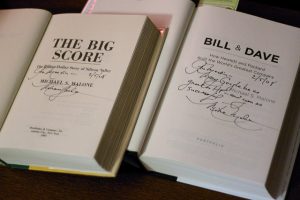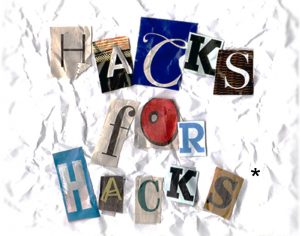Buzz, Balls & Hype
Photo by Diego PH on Unsplash
I have to confess I’ve never been a huge fan of public speaking. And yet, since Everyone Knows You Go Home came out in March, I’ve been on a whirlwind of a book tour that’s consisted of day after day of public speaking.
And I’ve loved every minute of it.
Despite being an introvert and a person who grew up very shy and soft spoken, reading my work in front of audiences has been a transformative experience. Whereas for my first book, I would get nearly unbearably nervous before an event, for my second I’ve learned to embrace the nerves as productive energy. It reminds me a lot of my teens and early twenties, a time when I was a dancer and performed onstage regularly. Always, before curtain, I’d become overwhelmed by a rush of nerves that immediately went away when the music started. There was no going back at that point, so I’d have no choice but to surrender to the moment. Those three to five minutes of dancing were always pure bliss, liberating in ways that are hard to describe.
Reading my work has begun to feel like that as well, but only because I don’t think of it as reading or public speaking. I think of it as a performance. Framed in this way, it’s something I realize I’m lucky to be able to do. Here is an audience—real, live people!—wanting to experience my work.
As a show of gratitude, I try to make that experience as enjoyable as possible. Below are some ways performing affects how I prepare for an event—and how it might help you, too.
Read MoreWarning: Hacks for Hacks tips may have harmful side effects on your writing career, and should not be used by minors, adults, writers, poets, scribes, scriveners, journalists, or anybody.
Have you heard of Patreon? It’s a company that empowers crowd-sourced patronage of the arts, including but not limited to authors. By pledging monthly support at one of various patronage tiers, each with its own level of perks and rewards, you’re able to support your favorite writers directly. I have recently started my own, and it is my fondest wish that your patronage does not include me.
You may know me as famous author Bill Ferris. But I am also a single dad with a full-time job and not very much time to write. By supporting my Patreon, you’re just one more person for whom I must drop what I’m doing and cobble together your monthly rewards, which are terrible. Worse, this busywork distracts me from my main writing projects, to say nothing of spending time with my family or doing my mentally taxing day job.
However, it has come to my attention that you don’t like me, or are at the very least indifferent to my suffering. You are willing to prey upon my greed and bottomless need for praise and validation in exchange for a few lousy entertainments once per month, to diminishing returns. So be it. Behold, the instruments of my destruction. Do your worst, patrons.
Tier 1: Nuisance ($1 or more per month)
You believe you’re supporting me, and I know your heart’s in the right place. You’ll get access to my Patron-only blog, which is a thing I apparently have to write now.
Tier 2: Least-favorite Friend ($5 or more per month)
You’ll get access to my Patron-only blog, as well as a forum where you can ask me questions like I’m some kind of advice columnist, and I’ll be honor-bound to give you guidance of dubious quality. Think of all the things you could buy for five bucks–an ice cream cone, a magazine, a bottle of wine from Trader Joe’s; these are all things that could bring you joy without burdening me with extra work and without further raising your expectations, which I guarantee I won’t live up to.
Tier 3: Troll ($10 or more per month)
Jeez, you’re really serious about this, aren’t you? What do you actually think you’re going to get that’ll be worth $10? I guess I’m now contractually obligated to give you all the “rewards” mentioned above, PLUS the raw, unedited, poorly organized first draft of whatever story, novel, or essay I happen to be working on at the moment. (You’ll notice I capitalized the word “plus” here to imply this is not a perk, but a threat.)
Tier 4: Antagonist ($25 or more per month)
Oh, sorry, I didn’t notice you’d decided to contribute at this level, as I was busy playing catch with my sons whom, by the way, are growing up so fast and will not for long see the world through the innocent eyes of children. Welp, no time for that now, because I guess have to do a live chat/Q&A session with my $25 subscribers. During the sesh, you’ll get to ask me profound questions about writing that I will be […]
Read MoreLet’s talk about your authorial autograph. You’re gonna sign a lot of books on your way to the bestseller list. But you can’t just sign your name like you do on personal checks and contracts, unless you want to be picking up a lot of your readers’ bar tabs. (If I catch you doing this, I’ll personally steal your identity just to teach you a lesson. I am strict but fair.) All your favorite authors have practiced their book-signing signature for years. You would be surprised by how many authors landed multi-book deals just because their signature looked cool. (It’s like five or six, which is still a lot for this sort of thing.) I’m here to share their signature moves.
Choose Your Weapon
Choosing the correct pen is half the battle, or at the very least, provides a great excuse to go to the office supply store. Sharpies are terrific for this. Make your signature stand out by choosing a color other than black. To really have some fun, sign your name in invisible ink, especially if the person you’re signing it for is giving the book as a gift. Ha ha, what fun!
Pen color isn’t all that important, though. Like a camera, the best pen is the one you have with you. And if you don’t have a pen with you, you’ll have to sign in blood, which is dangerous–more than a few authors have accidentally sold their souls to the devil this way. For that, you’ll want to hold out for at least six figures.
Where were we? Right, pens. Very, very important.
Practice Makes Perfect
Method 1: The Squiggle
The ink should flow from your pen like the wine flowed down your gullet when you wrote your book. I don’t mean that literally–we don’t want the pen to explode, you lush! Just put some oomph into it while you’re signing. If you do it right, your signature should match your polygraph readout when someone asks you how many books you’ve sold.
Read MoreWarning: Hacks for Hacks tips may have harmful side effects on your writing career, and should not be used by minors, adults, writers, poets, scribes, scriveners, journalists, or anybody.
You’ve tried everything—publishing, self-publishing, vanity publishing, e-publishing, third-person publishing—but you just can’t achieve the breakthrough success you’ve always desired. No mere mortal can climb Slush Mountain of their own accord; you must become something more. You must encase yourself in a foolscap chrysalis and emerge even better than your best self. You must summon all your creative power, all your skill, all your life experience to give life to—then take it from—the greatest literary mind of the twenty-first century: yourself.
Stage 1: Create Your Ideal Author
The first thing you’ll have to do is create a pen name. What, you thought you were gonna get to keep the loser name you’ve done nothing with? Names are important, which is why you must ditch that anchor of a moniker that’s been weighing you down your whole career. Imbue your new persona with every virtue you wish you had for yourself–not just talent, but good looks, charm, a spotless criminal history. You’re not creating a Mary Sue, you’re creating a Virgin Mary Sue who will give birth to the salvation of your literary dreams.
Stage 2: Logistics
Stage 3: Murder Your Darling
Now that you’ve created this literary monster, it’s time to unlife them. This should be easy; ever since you read Game of Thrones, you’ve taken a fiendish delight in butchering your characters in your books. Yet this feels different, does it not? More personal, like one of those spy movies where the hero has to kill a rival agent who is also their lover. Just be kind and make Your Ideal Author’s death a quick one. And glorious, like a train derailment off a mountainside or something. Just like your mermaid samurai in your sci-fi epic came to learn, being a hero means making sacrifices. Except you don’t feel like the hero, do you? Your Ideal Writer was far more heroic, more noble than you could ever…well, never mind that, now. In time, you’ll learn to forgive yourself for what you’ve done
Read More
Warning: Hacks for Hacks tips may have harmful side effects on your writing career, and should not be used by minors, adults, writers, poets, scribes, scriveners, journalists, or anybody.
Your career is taking off–someone asked you to blurb their book! Yes, you! No, I can’t believe it either! I mean, out of all the authors available who have better sales and a bigger following and…well anyway, they picked you, so nice job.
This is a big opportunity. Blurbing a book lets you seize a chunk of someone else’s life’s work and make it all about you. Furthermore, if people are asking you for an endorsement, you’re now a tastemaker, subtly steering the zeitgeist toward works of true literary quality. The resemblance of said works to your own books is purely coincidental.
Like any important endeavor, there’s the distinct possibility you might screw it up, thereby trashing not only your own career, but that of a fellow author whose only crime was believing in you. Not sure what to do next? Aren’t you lucky you have me to tell you!
[pullquote]Blurbing a book you haven’t read would be unthinkable, even though it would be impossible to prove, and you’d face no consequences whatsoever. Oh yes, you’ll definitely read every word.[/pullquote]
Step 1: Agree to Blurb Every Book You Possibly Can
Remember when you were desperately begging every author you’d ever met to say just one nice thing about your novel? Just one?! Don’t make other writers go through that. You can be sure that if someone’s asking you for a blurb, they’ve already been turned down by half the RWA. When you come across an author who’s so, shall we say, highly motivated, you can ask for a few perks. I don’t mean anything fancy, just get the author to promise that your blurb will appear before any other author’s on the jacket. You’re doing them a favor, after all, so it wouldn’t kill them to work with you a little, amirite? No need to be pushy, but don’t be bashful either; with the right combination of charm and passive aggression, they’ll let you pick the font and weigh in on the cover design.
Step 2: Read the Book
Now that the author has agreed to your demands, it’s time to read the book. This is of utmost importance, because who would ever blurb a book they haven’t read? It’s unthinkable, even though such a thing would be impossible to prove, and even if it wasn’t, the offender would face no consequences whatsoever. Oh yes, you’ll definitely read every word.
Read MoreIn a twist of fate, former contributor MJ Rose sent an email this morning mentioning she had written a from-the-gut post that seemed right for WU. We had no post scheduled for today. The rest is history. Please welcome MJ Rose back to WU for a post on the after-pub blues, which comes on the heels of the publication of her latest novel, the beautiful The Witch of Painted Sorrows.
Apropos of a few blog posts I’ve read elsewhere and posts here and there, and my own book coming out last week… I’ve been thinking about “post-pub-blues.”
I think one of the real problems we authors face is that in order to write a book–to do all the research, to juggle day jobs and family and make sacrifices to find time to write, to sweat over words and paragraphs and characters, to sometimes bleed on the page–we have to believe what we are creating is not only wonderful and amazing and worth what we are giving it, but that there is no other book like it.
We have to be huge optimists.
We have to believe in the impossible.
Certainly our books are good. But in reality, there are hundreds of good books published every month…and thousands and thousands every year. And no matter what I tell myself while I’m writing, to keep myself writing, I know the truth. And the truth is I don’t write miracles. I just tell stories.
Yes, they are often fine stories. But are they really wake-up-in-the-morning-and-shout-from-the-rooftops-no-one-has-ever-written-a-book-like-this-before-oh-my-god-stop-the-world stories?
No. Not even if that’s what it took for me to believe that in order to write it. They are not.
And that’s where the problem lies.
Read MoreLast month I went to the Sundance Film Festival for the first time ever because, against all odds, I had a film premiering there. The film is a documentary called Misery Loves Comedy, and it basically asks the question, “Do you have to be effed up to do stand-up, or does doing stand-up eff you up?” (Spoiler alert: yes.) I’ll talk in a moment about what it means to “write” a documentary, but first I’d like to tell you how I got the gig to begin with, and why I took it, because it speaks to one of my core values as a writer: flexibility.
Years ago, as some of you know, I wrote a book on writing comedy called The Comic Toolbox. Fewer years ago, as fewer of you know, I became something of an expert in the field of poker (well, “expert” – I wrote many books on the subject). At some point in the dim and distant past, I played poker with a guy who, as it happened, was a fan of The Comic Toolbox, and we stayed in vague touch for many, many years. Eventually he went into the business of producing documentaries, and since my ideas resonated with him, he asked me if I’d like to be part of Misery Loves Comedy.
So, first lesson: You never know what’s going to wash up on your beach. A book I wrote to clarify my own understanding of comedy, plus many books I wrote to exploit a hot market (poker) created the unforeseen opportunity to do something I’d never done before, write a documentary.
What does it mean to write a documentary? In my case, it meant writing a bunch of framing documents that moved the concept from amorphous goo into something more structured, and writing a lot of questions for the director to ask many comedians. When I said yes to the gig, though, I didn’t know the first thing about writing a documentary. I’d never done it before, didn’t know if I could do it, but that didn’t stop me, or even slow me down, because, second lesson: Never leave money lying on the table. If someone wanted me to pay me to write a documentary, I was by gum going to write a documentary, whether I knew how to do it or not.
Did I have to fake it? Somewhat, but it really wasn’t a problem. I’m long practiced at the art of representing myself as an expert at anything. Frankly, it wouldn’t occur to me not to. If I am committed to learning and growing as a writer (and I am) then I must necessarily accept every challenge that comes my way – especially ones that pay – even if they scare me. [pullquote] If I am committed to learning and growing as a writer (and I am) then I must necessarily accept every challenge that comes my way.[/pullquote] So, third lesson: Do it, even if you’re scared. Do it even if you’ve never done it before and even if you’re not sure you can do it. Don’t let fear of failure ever stop you from trying.
I’m looking over my own shoulder as I write these words and I’m thinking, “That’s easy for you to […]
Read MoreWarning: Hacks for Hacks tips may have harmful side effects on your writing career, and should not be used by minors, adults, writers, poets, scribes, scriveners, journalists, or anybody.
Well, well, WELL, look who’s got a book coming out? What started out as some chickenscratch on a napkin has culminated in a published book with a cover and paragraphs and everything. This calls for a celebration. A book launch is your chance to inflate your ego, generate some buzz, and to show your doubting parents that those rent-free months in their basement weren’t for nothing. If you’re going to throw a shindig, though, don’t just set out some Cool Ranch Doritos and two-liter bottles of pop. You owe it to your career to make this the social event of the season. I’m going to show you how.
Planning
Set a Budget: Precisely calculate costs for food, alcohol, decorations, pens for signing books, and giveaway bookmarks. Once you’ve got that total, tack on 40% or so since you know you’ll go over budget anyway.
Theme: Choose a theme that relates to your book. Is it historical fiction? Period-inspired clothing is all the rage. Literary fiction? Set up tables where attendees can smoke cigarettes and contemplate the constant daily dehumanization inflicted by modern life. Military science fiction? Have some guys with guns burst into the room without warning. Ha ha, what fun!
Invitations: Like any good party, you can’t have just ANYBODY showing up. Limit invitations to whoever happens to be on your Facebook friends list. Don’t bother with real-life invitations–you’ve burned out all your real-life friendships by asking them to beta-read your novel.
Reserve a Space: Bookstores are great because they sell books. You also sell books. This is not rocket science. Still, you’ll want to be sure you get your preferred date and time, so book the venue, at minimum, an hour or two before the party.
[pullquote]Precisely calculate costs for food, alcohol, decorations, pens for signing books, and giveaway bookmarks. Once you’ve got that total, tack on 40% or so since you know you’ll go over budget anyway.[/pullquote]
Refreshments:
So you are having that first marketing meeting with your publisher for your book… or that first phone call. Is there anything you should be asking in particular? Should you push for anything specifically?
If this is the first call? You want to hear their plans. Then you and your agent should go over what they said and translate it – there can be code in their answers. Ask them what they are planning on doing and listen and take notes. When they say something like – We’re doing Goodreads- ask them to be specific and write down what they say.
Chances are the first call/meeting will be more than several months pre-pub. So lots of info won’t be available yet. They wait to decide some things till they get a sense of orders. But you still want to find out as much as you can. Just remember it is only the first call/meeting. There should be another before the ARCs are sent out. At that point they’ll know more. And then there should be yet one more once they have a sense of how those orders are looking.
At every stage there’s more you can find out and more you need to know. And at every stage you and your agent should be working on and refining a wish list of marketing and PR opportunities/efforts. To do that you’ll want to get a lot of questions answered so you can see if there are any holes and figure out if you need to bring in any outside services or if everything looks good.
Also all this knowledge helps you manage your expectations and that’s half the battle when it comes to having a good publishing experience. If you know going in that they are happy to be publishing you but aren’t giving your book the “it” treatment, you’ll be happy when you go back to press for a second printing. But if you have no idea how they see your book and are anticipating it getting “Gone Girl” PR, marketing and co-op treatment, you’ll be devastated when you don’t see stacks of books in B&N.
Here’s a checklist of what you want to find out to help you figure out what they are doing, what they aren’t, where your book ranks in terms in terms of effort and juice, and what you should be thinking about doing yourself.
Read MoreI understand my problem exactly.
On the one hand, I have a lot of how-to books (on writing and on poker) which sell their asses off because they have just exactly the information that certain people need, just exactly when they need it. On the other hand, I have all these terrific novels that struggle to find their audience, because reading a novel is a recreational activity; in other words, it’s a want to, not a need to proposition. How-to books sell because they meet the needs of a specific need-to proposition: the need to know how to do something. Novels, however, face fierce competition, not just from other novels but from all forms of recreation, especially when we take our reading digital. I’ll read books on my iPhone all day long – once I get done with my email and twitter and the baseball scores and all the dang games app-based games I play. I know I’m not alone in this. Never in human history has the act of picking up a book had to compete so hard against the act of picking up something else.
Okay, so that’s where we are: need-to books sell easily; want-to books sell hard. How should we, as cottage-industry entrepreneurs, respond to this? One thing’s for sure: we should write a lot of need-to books. This is simply a matter of looking around, saying, “What am I good at?” and knocking out 15,000 words on that subject. Did I say 15,000? Yes, 15,000. That’s not much, nowhere near the 70,000 words that you need to call a novel a novel. Is 15,000 words enough for a how-to book? I can tell you from personal experience that the answer is an emphatic yes. Because, you see, a function of all those rapidly shrinking attention spans out there, and a function of the competition of all those games, websites, downloads, videos, and social media, is that people would rather spend less – less time and less money – even for information they know they really need. My two small reads – the little book of SITCOM and How To Write Good – routinely outsell my whole novel catalog combined. They earn. They earn consistently and reliably, month after month, year after year, and they (and titles like them) allow me to call myself a working writer – a consummation devoutly to be wished.
So why don’t I write how-to books exclusively?
Read MoreThe highway to publication overflows with cars: luxury behemoths; sensible hybrids; nondescript, windowless vans with strange dents that protrude from the inside. Each bears the logo of the mechanic who brought it to life. You’ve built a car, too, with good mileage and a cherry spoiler. [Author’s note: The cars are a metaphor for your books.]
But when you get your baby on the highway, you can’t ignore that a metallic paint job and tilt steering is all that differentiates your vehicle from every other car in its class, no matter what shiny-metal totem adorns its hood. How does your creation stand out? You don’t need a better insignia. You don’t even need the car metaphor. You need to remake yourself. You must become the deer sprinting headlong across the road. When your book crumples someone’s hood and cracks their windshield, rest assured you’ve got their attention. And that’s pretty much the Tab-A and Slot-B of branding.
[pullquote]You need to remake yourself. You must become the deer sprinting headlong across the road. When your book crumples someone’s hood and cracks their windshield, rest assured you’ve got their attention[/pullquote]
As a twenty-first-century author, the fulcrum of your success is your personal brand. Think Hemingway’s manliness. Neil Gaiman’s leather jacket. Harlan Ellison’s sociopathy. A lot of folks are confused about what exactly branding is. Folks like me, for example. After extensive research in the furthest corners of the internet–at great risk to my personal safety and sanity, you’re welcome–I’ve determined that branding means pretty much whatever you say it means (and since I’m the big shot with the column, when I say “you” I mean “me”). So here’s how to get started building your personal author brand:
Read MoreOn a weekly basis, I field emails and phone calls from authors who are tackling the world of publishing alone. They have decided to self-publish their book or go with a small press and are looking for guidance to promote it. They often ask – can you help make my book a bestseller? How can publicity help sales? What are typical sales numbers for books you represent that have no publisher?
I start off by telling them these three things: every book is different, PR doesn’t guarantee sales and it will be an uphill battle. I am very selective with self-published books that come my way. Not because I have anything against self-publishing; but, because I won’t take a book on if I don’t think I can succeed on some level. I won’t take any book on unless I feel like I can succeed – it’s not about the number of clients for me, it’s about the work itself and if I’m a good fit for that book and author. So that I can successfully help on that uphill battle.
Most of the news about self-publishing is daunting and still very gloomy. The stigma still exists. I try not to be discouraging, but I know I need to be realistic. I had a self-published author come to me and say she wanted to sell 30,000 copies of her book. I told her she’d be lucky to sell 300. I wanted to be honest and up front. Yes, we would do all we can, but I wanted her to have realistic expectations.
But today I don’t want to be gloomy or discouraging when it comes to self or indie publishing. I want to tell you that IT CAN BE DONE! You can do it! And I want to share with you some success stories and tips – real stories of self-published authors who are not Amanda Hocking or John Locke or E.L. James.
Read MoreSummer vacation – is there anything better? I’ve just had the most amazing summer vacation. This year, we skipped the beach, we skipped the long lines at Disneyland and we headed to the mountains of Colorado and Montana. We didn’t just have a summer vacation – we had a summer adventure.
I now know why so many writers retreat to the mountains – to cabins, to lakes, to nature – to write their books. I was inspired by the views, the sounds, the smells so much that I wanted to write a book! But rather than channel my inner-Hemingway, I channeled my inner-adventurer. We went hiking, we went geocaching, we went exploring to the tops of 14,000-feet-above-sea-level mountains –by jeep, by train, by tram, by foot. My family zip-lined over the tops of trees and down the Big Sky’s Lone Mountain. I watched and took pictures that day – and couldn’t help but think that book publicity has a lot in common with zip lining.
3 Ways Book Publicity is Like a Zip Line
#1 It’s in the (personal) approach
Watching several of the zip-liners, including my husband and two of my kids, I realized their personalities were all different and they were each approaching the adventure a different way – just like my clients. Some authors are timid and unsure if they want to invest in publicity and never really gain their footing until things starting happening and they slowly get a smile on their face (just like my 12-year-old daughter who had to warm up to the zip line); some are scared the whole way and need constant reassurance and even when they get off at the end, they are not sure they would do it again (like my business partner Kim whose family joined us in Montana); some are aggressive and bold and take charge, wanting as much detail and fun as possible, who enjoy every moment and are up for any crazy out-of-the-box or spontaneous idea (like my husband who zip-lined upside down!); others enjoy it but want it to be safe, straight, predictable and planned out well in advance.
- « Previous
- 1
- 2
- 3
- 4
- Next »














